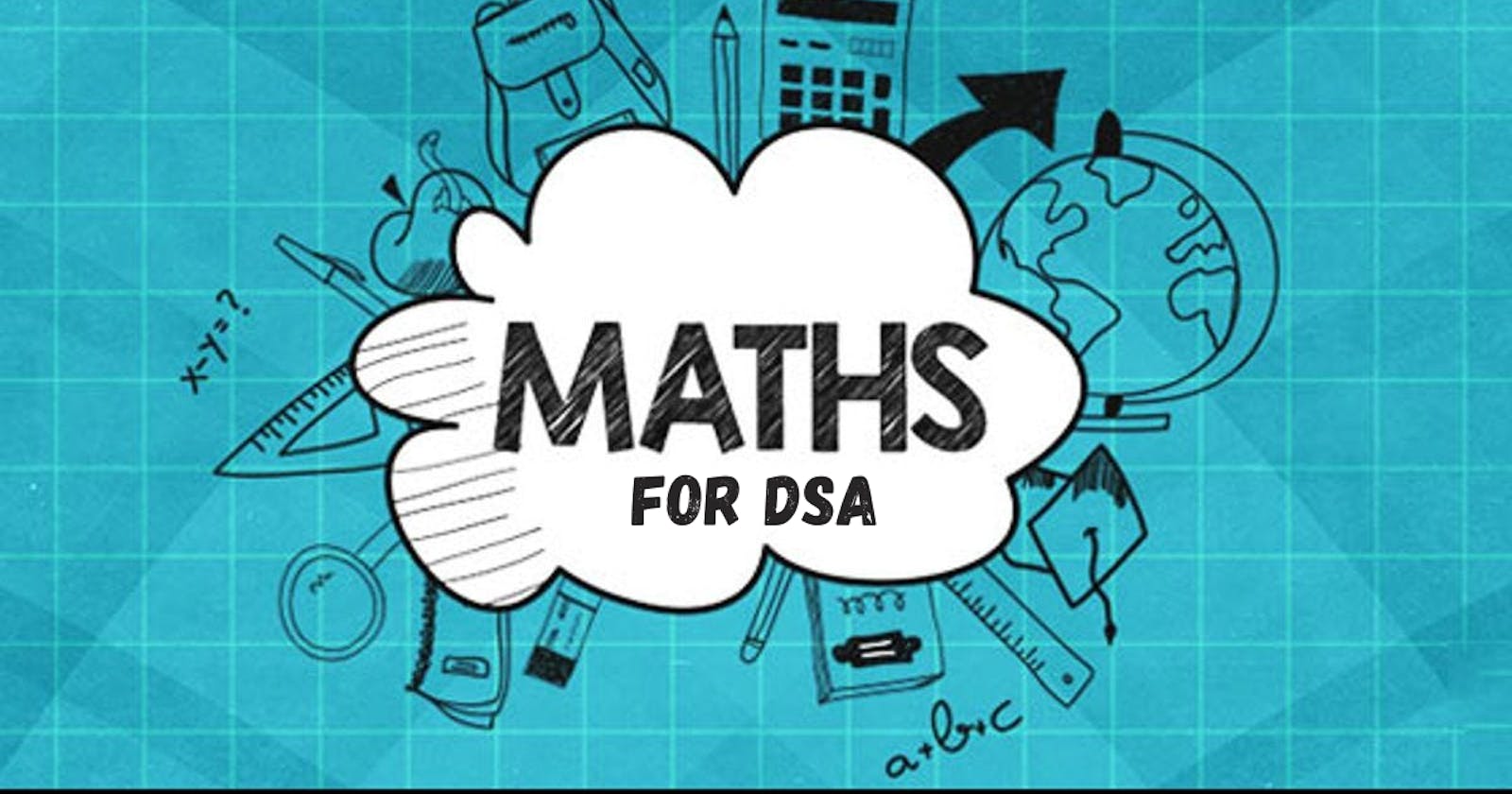Hello, fellow Data Structures and Algorithms (DSA) enthusiasts! 🌟 Are you gearing up to conquer DSA challenges and become a coding maestro on platforms like LeetCode or HackerRank? Today, we're embarking on a journey to explore the profound role of MATH 🧮 in your DSA expedition.
1. The Fundamental Arithmetic: Let's start with the bedrock of math. Addition, subtraction, multiplication, and division aren't just numbers; they're your allies in solving real-world problems.
- Example: Whether you're calculating sums in an array, dividing data, or finding averages, When you're calculating the total price of items in an online shopping cart or dividing a project into equal tasks you're applying these fundamental arithmetic operations.
2. Logarithms - Efficiency Unleashed: Efficiency is the name of the game in DSA. Logarithms are your key to understanding how quickly an algorithm operates.
- Example: Imagine you're designing a search engine; logarithms come into play as you efficiently retrieve relevant results from a massive database. Imagine binary search; logarithms are at play as you swiftly locate items in a sorted list.
3. Graph Theory - Navigating Complex Networks: Graphs aren't just abstract structures; they're your roadmap for tackling intricate real-world problems.
- Example: Consider a social network platform like Facebook; graph algorithms help find friends, recommend connections, and even detect communities. Think of Dijkstra's algorithm, guiding you through the shortest route in a GPS app, or traversing social networks. 🌌
4. Number Crunching - Prime Numbers Protect: Prime numbers aren't just math oddities; they're at the heart of many encryption methods.
- Example: Think about online banking. When you securely make transactions or log in, prime factors play a crucial role in safeguarding your data. Modular arithmetic helps protect your online identity.
5. Predicting the Future - Probability Guides: Real-world scenarios often involve randomness. Probability theory equips you to make informed predictions and navigate uncertainty.
- Example: In weather forecasting, probabilistic algorithms help meteorologists predict rain, sunshine, or storms.
6. Shapes and Spaces - Geometry at Work: Geometry isn't just about lines and shapes; it's about defining spaces.
- Example: Imagine you're working on a video game. Geometry helps you build 3D environments, ensuring characters move seamlessly through the game world. In architecture and design software, it assists in creating intricate structures.
7. Efficiency Measured - Big O Notation: Big O notation is your GPS in the world of DSA. It tells you how your code performs under the worst circumstances.
- Example: When optimizing algorithms, selecting data structures, or evaluating the scalability of software, Big O helps you make informed decisions.
8. Logic and Proofs - Building Robust Solutions: Logic is your tool for creating solid, reliable code. Proofs ensure your solutions are foolproof.
- Example: Think about building a critical system like air traffic control. Logical reasoning and proofs are vital for ensuring that the system operates safely and accurately.
9. Discrete Math - Real-World Data Structures: Discrete math tackles integers, graphs, and trees—cornerstones of DSA.
- Example: When you're analyzing a network's connectivity, like in LinkedIn, or modeling the relationships between web pages for a search engine like Google, discrete math becomes your guiding light.
10. Linear Algebra - Handling Complex Data: Linear algebra empowers you to work with intricate data structures, like matrices and vectors.
- Example: Imagine you're diving into machine learning. Linear algebra underpins tasks such as image recognition, speech processing, and recommendation systems.
11. Calculus - Analyzing Algorithm Efficiency: Calculus isn't just about derivatives and integrals; it's about understanding how functions behave.
- Example: When analyzing the efficiency of algorithms, like quicksort or merge sort, calculus helps you comprehend the rate at which resources are consumed.
12. Stats - Illuminating DSA Data: Statistics isn't just about data; it's about extracting meaning from it.
- Example: In DSA, statistics helps you analyze the performance of algorithms with large datasets, make data-driven decisions, and design probabilistic data structures. For instance, think about a recommendation system like Netflix; statistics plays a crucial role in suggesting content tailored to your preferences.
As you embark on your DSA journey, remember that math isn't an abstract concept; it's your practical toolkit for crafting elegant, efficient, and effective solutions to real-world coding challenges. 🌍✨
So, keep coding, keep learning, and keep exploring the mathematical magic. The realm of DSA is yours to conquer, and it's ready to embrace those who dare to dive into the world of numbers! 🚀🌟
#DSAjourney #MathMagic #CodingSuccess
